Home » What Is Data Mining? A Complete Guide
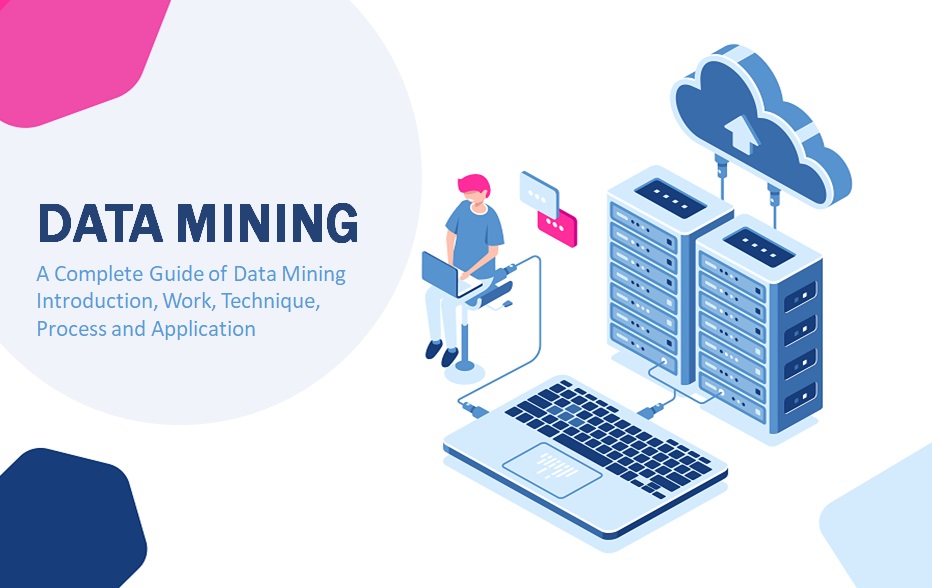
In order to thrive in today’s market, every business requires a substantial amount of data. They must gather, analyze, and comprehend data pertaining to their target audiences, the overall economic market, and their own performance. This enables them to make informed decisions, avoid potential pitfalls, and generate more revenue.
However, simply amassing vast quantities of raw data is insufficient. The data must undergo a transformation process known as data mining to become valuable information.
Data mining is a unique procedure that converts raw data points into meaningful insights. It involves identifying various patterns, correlations, or anomalies within extensive data sets to predict outcomes or gain a deeper understanding of the origins of the data points.
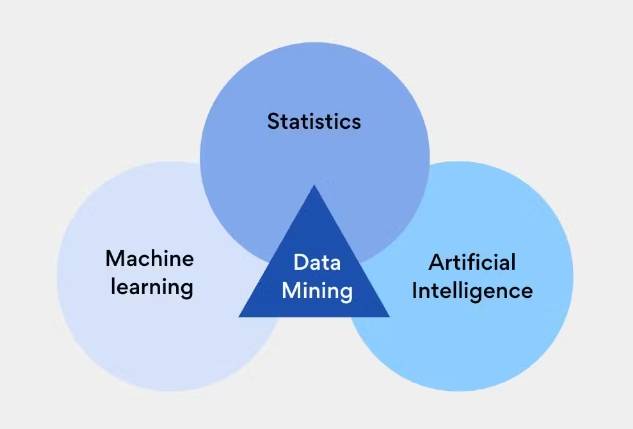
In order to thrive in today’s market, every business requires a substantial amount of data. They must gather, analyze, and comprehend data pertaining to their target audiences, the overall economic market, and their own performance. This enables them to make informed decisions, avoid potential pitfalls, and generate more revenue.
However, simply amassing vast quantities of raw data is insufficient. The data must undergo a transformation process known as data mining to become valuable information.
Data mining is a unique procedure that converts raw data points into meaningful insights. It involves identifying various patterns, correlations, or anomalies within extensive data sets to predict outcomes or gain a deeper understanding of the origins of the data points.
The process of data mining encompasses the entire journey from collecting data to analyzing it. It begins with the initial gathering of data and then moves on to visualizing the data. During the visualization phase, analysts extract valuable insights from large data sets using various techniques to make predictions, provide descriptions, or uncover other important information about a specific data set.
Moreover, data scientists have the ability to characterize the data they collect and mine by observing correlations, associations, or patterns. They can also organize or group data through various regression or classification methods.
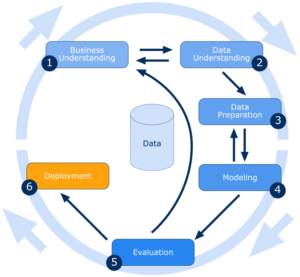
Initially, organizations typically determine their objectives in terms of the data set, the inquiries they need to pose, and the parameters they need to establish for the project. In this phase, data analysts may conduct additional research to gain a comprehensive understanding of the business context surrounding their endeavors.
After determining their objectives, data scientists can pinpoint the appropriate data set to analyze or mine. Subsequently, they gather pertinent data and refine it by eliminating data anomalies, like outliers, missing values, and accidental duplicate entries.
Data scientists explore intriguing or significant data connections, such as correlations or sequential trends. Patterns found in high-frequency data often hold wider implications for businesses. However, deviations within data sets can also be of interest. For example, a financial data point that stands out could suggest potential fraud. In the process of pattern mining, scientists might utilize advanced deep learning algorithms to categorize, group, or structure data sets.
Once the collected data is consolidated, the outcomes are assessed, analyzed, and utilized to derive inferences. These inferences can subsequently impact policies, business choices, or other measures based on the predetermined objectives established beforehand.
Exploring the Vast Horizons of Computer Science
Data scientists have at their disposal a range of data mining techniques and algorithms to extract valuable information from large datasets. Some commonly used techniques include association rules, neural networks, decision tree analysis, and K-nearest neighbour (KNN) algorithms.
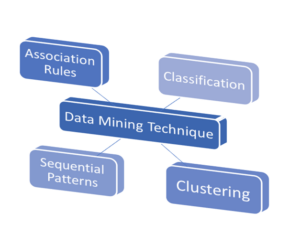
Data mining is widely utilized due to its numerous potential applications. Indeed, data mining is applicable across a wide range of industries, encompassing:
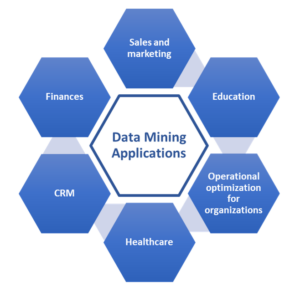
Numerous organizations utilize data mining to gain deeper insights into their customers or potential clients, subsequently creating marketing or sales strategies tailored to effectively engage with these specific target audiences.
Numerous educational establishments employ data mining techniques to gain a deeper understanding of their students and create educational environments or online platforms that foster academic achievement. (AI in Education: Transforming the Learning Experience)
Enterprises utilize process mining to streamline operations, minimize expenses, and enhance overall efficiency and cost-effectiveness.
In the realm of finance, data mining plays a crucial role in fraud detection. By analyzing patterns in financial data, finance organizations can identify irregularities, enabling them to apprehend financial wrongdoers or prevent widespread fraudulent activities.
Ms. Tanya Chauhan
Asst. Professor
Computer Science & Engineering Dept.
Lingaya’s Vidyapeeth
Private College for CSE
Lingaya’s Vidhyapeeth is Top Colleges in Delhi that the premier choice for M.Tech in Computer Science Engineering (CSE) Courses. With a robust curriculum, distinguished faculty, and state-of-the-art facilities, it provides students with an exceptional learning experience. The college’s focus on innovation and research ensures graduates are well-prepared for dynamic career opportunities in the field.
February 28, 2024
RECENT POSTS
CATEGORIES
TAGS
Agriculture Agriculture future AI Architecture artificial intelligence BA English BA Psychology BTech CSE BTech Engineering Business management career Career-Specific Education career guide Career Opportunities career option career scope Civil engineering commerce and management Computer Science Computer science engineering Data science degree education Engineering Engineering students English Literature english program Exam tips Fashion Design Fashion design course Higher Education Journalism journalism and mass communication law Law career Machine Learning MA Psychology Master degree mathematics MBA Mechanical Engineering Pharmacy Psychology Research and Development students
University Address: Nachauli, Jasana Road, Faridabad, Haryana
Toll Free: 1800-120-4613
Mobile : 8447744303 | 8447744304 | 8447744306 | 8447744309
Address: C-72, Second Floor, Shivalik, Near Malviya Nagar,
Above HDFC Bank, New Delhi 110017
Ph.No. - 011-46570515 / 45138169 / 41755703 / +91-7303152412
Jagmani Kutir, Ground Floor, Road No-1, Rajeev Nagar,
Near Darbar Marriage Hall, Patna-800024, Bihar
Contact No: 9818352069/8130120095
Mail: [email protected]
Copyrights © 1998 - 2025 Lingaya's Vidyapeeth (Deemed To Be University). All rights reserved.
It is important to note that the following email IDs and domains are fraudulent and do not belong to our university.
LV only conducts physical/online verification of any document related to examination on the following email id: